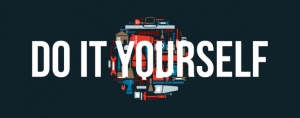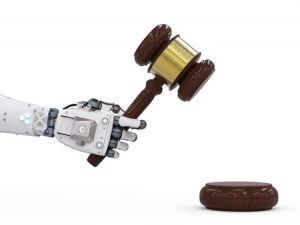
SoftSettle Support
Disputes are virtual certainty in any society. A great percentage of these disputes revolve around money- how much is owed to whom. A vast legal system has been built around resolving monetary disputes, whether it involves a dispute over money owed or a cause of action for damages arising from a commercial or physical injury to a party. Even in the litigious society, most disputes do settle without resort to the courts.
Many disputes settle late in the game, often on the courthouse steps and usually only in an effort to avoid an uncertain outcome in litigation. Of course, by that time, all litigants have spent a significant amount of money in prosecuting or defending the lawsuit. While the courthouse settlement is a meaningful and preferable alternative to a trial, such settlement would be less costly and probably more fair if it had occurred much earlier in the process.
One of the settlement dynamics that impedes the early resolution of many disputes is that the parties find it very difficult to move very far or very fast in their negotiations. Impediments to prompt settlement include posturing, a fear of appearing weak or uncertain, an unrealistic vision or understanding of the other side’s position, or fear of vulnerability. In most cases, the negotiation starts at extreme positions and passes through a number of incremental, snail-like movement before a final settlement number is reached. Removing these impediments can help the parties achieve agreement much more quickly.
Mediators can play a vital role in advancing settlement. The mediator can frequently speed the process by finding out from each party, on a confidential basis, what are that party’s “trigger points’—what does that party expect to get out of the dispute. In addition, the mediator can learn, or at least discern, a party’s “bottom line”. During this information gathering, the mediator may discover that the “bottom lines” are not that far apart. If the parties are far apart at first, skillful wrangling by the mediator can frequently bring the parties within reach of each other. At that point, the parties are much closer together than they would have been had they set out on the traditional negotiation path.
One significant benefit of the mediator is that each party’s conversations and disclosures are maintained in confidence until agreement is close at hand. All of the fears normally associated with face-to-face negotiations dissolve. There is no need for a party to avoid making a big move towards the middle, which carries the risk in personal negotiations of appearing uninformed, weak or desperate. Neither party holds back information or bargaining proposals because the filter of the mediator is always there. Moreover either party can retrench and retract a previous settlement position while preserving the settlement opportunity.
While a mediator is a very valuable asset, not every party to a dispute wants to use a mediator. Most disputes are settled through person-to-person discussions, and most frequently through attorneys. Face-to-face settlement conferences can require significant commitment of time and monetary resources by the parties and their attorneys. Negotiations through mail, or even e-mail, can be slow and ripe for posturing. Both approaches eliminate the safe harbor of confidentiality that allows the participants to freely examine, offer and counteroffer without fear of reprisal or without risk of killing the negotiations.
In recent years, internet based systems have arisen that guide parties through a settlement process. In many of these online settlement systems, each party is entitled to make a limited number of offers/counter offers, usually three, in alternating fashion. These offers, counter offers, bids may be reflected to be the interests and software would work upon them is meant and built for Soft Settle platform rather than “split the difference” or “choosing the midpoints” so as to reach the settlement. Hence SoftSettle Support developed a different level of concept so as to pronounce Robotic Verdict.
A detriment of these prior systems is that they force the settlement amount to be at the midpoint between offers. This approach limits the flexibility of the settlement system and obligates the participants to “settle the blind” at an unknown amount. Moreover, these prior systems only offer one approach to settlement, again limiting the flexibility of the system to meet differing expectations of the participants. There remains a need for an automated dispute settlement system that retains the security of confidentiality while providing flexible approaches to meet the desires of the participants.
What is desired, therefore, is a system for performing dispute resolution that enables parties to present their issues to a customized decision maker and receive a determination in short amount of time at a reasonable price. Providing such a dispute resolution that operates over the internet with automated negotiation in the forefront could be the ideal turn in the revolution of dispute resolution inspired by technology.
Finding Algorithms to create a fairer legal system











